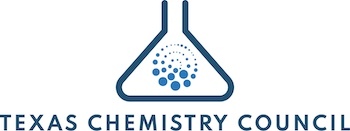Complete Story
01/30/2025
New PS alliance seeks ‘widely recyclable' status
Plastics News | Steve Toloken | Jan. 28, 2025
New PS alliance seeks ‘widely recyclable' status
Fourteen companies in the polystyrene industry are forming an alliance to try to increase recycling and get their material a coveted "widely recyclable" status on labels.
In a Jan. 28 announcement, the Polystyrene Recycling Alliance (PSRA) said it would work to expand access to recycling for both rigid PS and expanded PS foam, boost recycling rates, strengthen end markets for recycled material, and set up an education and investment fund.
The multiyear effort is in its early stages — the group declined to say how much money would be in the fund — and there are significant hurdles to recycling consumer PS packaging.
The Environmental Protection Agency, for example, says recycling rates for PS packaging and materials in municipal solid waste are between 3-6 percent.
Additionally, figures on PSRA's website estimate that access to PS recycling varies between 10 percent and 30 percent of the U.S. population, depending on the product. That is much lower than the 60 percent threshold needed for "widely recyclable" status.
But PSRA Chairman Richard Shaw, an executive at resin maker Americas Styrenics LLC, said initial data they've gathered has found some positives, such as that 32 percent of the U.S. population had either curbside or drop-off access to recycling one or more PS items.
He called that "much higher than assumed."
"That was encouraging, but let's be clear, we have more work to do," Shaw said in an interview. "We have a lot more work to do."
The group said it "expects" several PS formats to approach "widely recyclable" status by 2030.
PSRA commissioned consulting firm Resource Recycling Systems to survey 8,500 local recycling systems in the U.S. and build a road map for PS recycling to identify high priority areas for infrastructure grants and other programs.
PSRA also said RRS estimated that with growth in recycling capacity, between half and two-thirds of the U.S. could have access to recycling for a PS product by the end of the decade.
Seeking ‘widely recyclable' status
But the PSRA website also said that access rates for individual PS products today remains much lower.
For several product categories — foam clamshells, foam cups, rigid cutlery and rigid lids — recycling access is less than 20 percent, a level at which products are considered "not yet recyclable" under the How2Recycle labeling system and should be put in the trash.
PSRA said the PS products with the best access — rigid cups, rigid clamshells, rigid trays and foam transport — have access in the range of 20-30 percent of the U.S. population, which is considered "check locally" in labeling.
The "widely recyclable" 60 percent access level PSRA wants is also what the Federal Trade Commission's Green Guides recommends for products to make recyclability marketing claims.
"Widely recyclable status is one of those milestones," said Shaw, who is director of sustainability and circular economy at AmSty. "The FTC has put guidelines out there that a substantial majority of the population has to have access, typically defined as 60 percent or greater."
Some states are enacting tougher rules around recyclability marketing.
A 2021 law in California requires 60 percent curbside recycling access to declare a package recyclable, and another California law, SB 54, requires PS foodservice ware to demonstrate a 25 percent recycling rate or not be sold in the state.
Shaw pointed to some localized PS recycling efforts, like the Publix grocery store chain accepting foam PS packaging for recycling, appliance stores taking back EPS transport packaging and drop-off locations run by Cyclix, a joint venture of several plastics companies.
"We ultimately want to see the recycling rate get much higher than it is today," Shaw said, noting that one PS sector, EPS transport packaging, has a recycling rate over 30 percent for packaging used in business-to-business deliveries.
PSRA has not set recycling rate targets.
Chemical recycling ‘game changer'
Shaw pointed to chemical recycling, or advanced recycling as it's also called, as key to realizing PSRA's plans.
"Advanced recycling is the game changer," Shaw said. "Advanced recycling is what's going to help us get to scale. We see advanced recycling as complementary to mechanical recycling."
Shaw said that the PS industry's customers want more recycled content.
"We have customers that want more recycled polystyrene," he said. "We've been selling and others in our industry have been selling recycled polystyrene for several years now. There's a market for it."
Still, some PS applications face political challenges.
Since 2019, 11 states with more than 100 million residents have banned EPS foodware products, over recycling and litter concerns, and members of Congress in 2023 proposed a national ban. As well, the EPS industry has lobbied at the U.N. plastics treaty talks to avoid getting the label of a "problematic" product in that agreement.
PSRA, which includes AmSty as well as resin makers Ineos Styrolution, Styropek, and LyondellBasell and processors and recyclers, is looking for more companies to join and expand its resources, Shaw said.
"There's a lot of interest from members across the value chain in joining so I expect the infrastructure investment fund to significantly increase in year two [and] year three," he said. "This is a multiyear journey."
PSRA will operate as a self-funded unit of the Plastics Industry Association.

